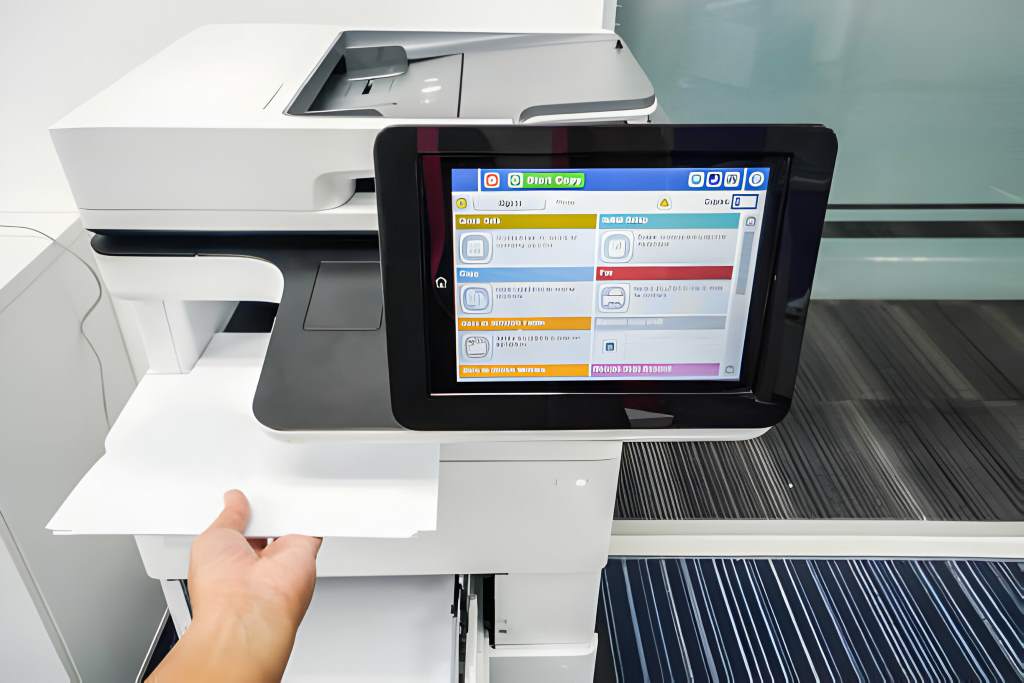Innovation in printing technologies has been a driving force behind transformative changes in various industries.
Advanced custom printing technologies have revolutionized the way businesses operate, communicate, and create products.
From enhancing brand identities to enabling personalized experiences for consumers, the impact of these technologies is profound and far-reaching.
In this article, we will explore the innovative advancements in custom printing technologies and their transformative influence across different sectors.
Introduction to Advanced Custom Printing Technologies
Custom printing technologies encompass a range of processes and techniques that allow for the creation of unique and personalized printed materials.
- These technologies leverage cutting-edge equipment, software, and materials to produce high-quality prints with precision and efficiency.
- Advanced custom printing technologies include digital printing, 3D printing, variable data printing, and other specialized techniques tailored to specific applications.
Key Innovations Driving Transformation
Key innovations driving transformation in custom printing technologies include advancements such as digital printing, which eliminates the need for plates and enables on-demand printing.
3D printing, revolutionizing product development and manufacturing with its additive manufacturing process.
Digital Printing
Digital printing has emerged as a versatile and cost-effective solution for on-demand printing and short print runs.
Unlike traditional printing methods, such as offset printing, digital printing eliminates the need for plates, making it ideal for customized and variable data printing.

3D Printing
Also known as additive manufacturing, 3D printing enables the production of three-dimensional objects layer by layer from digital designs.
his technology offers unprecedented design freedom and customization capabilities, revolutionizing product development, prototyping, and manufacturing processes.
Variable Data Printing (VDP)
VDP allows for the customization of printed materials by incorporating variable elements, such as text, images, and graphics, based on predefined criteria.
This personalized approach enhances engagement and relevance, making printed materials more impactful and effective.
Specialized Printing Techniques
In addition to digital and 3D printing, there are various specialized printing techniques tailored to specific applications, such as direct-to-garment printing for apparel customization, UV printing for signage and displays, and edible printing for food decoration.
Transformative Influence Across Industries
The transformative influence of advanced custom printing technologies spans across various industries, reshaping traditional practices and opening up new opportunities.
In retail and e-commerce, personalized products and packaging enhance the customer experience.
Retail and E-Commerce
Advanced custom printing technologies have revolutionized the retail landscape by enabling brands to offer custom packaging.
From custom apparel and accessories to personalized merchandise, retailers can cater to individual preferences and enhance the customer experience.
Marketing and Advertising
Custom printing technologies have transformed marketing and advertising campaigns by allowing brands to create targeted and personalized communications.
Variable data printing, in particular, enables the customization of direct mail, brochures, and promotional materials to resonate with specific audiences.
Healthcare and Biotechnology
In the healthcare sector, 3D printing is driving innovation in medical device manufacturing, prosthetics, and tissue engineering. Custom-printed implants and personalized medical devices are revolutionizing patient care and treatment outcomes.

Architecture and Construction
3D printing is disrupting the architecture and construction industries by enabling the rapid prototyping of architectural models and the construction of complex structures with precision.
This technology streamlines the design-build process and opens up new possibilities for sustainable and customizable construction solutions.
Education and Training
Advanced custom printing technologies are enhancing learning experiences in schools, universities, and training facilities.
3D printing, in particular, allows students to visualize abstract concepts, create prototypes, and engage in hands-on learning across various disciplines in the digital frontier and tech industry.
Challenges and Opportunities
Challenges and opportunities abound in the realm of advanced custom printing technologies. While cost and accessibility pose significant hurdles for some businesses, they also present opportunities for investment and growth.
Ensuring consistent quality and reliability remains a challenge, yet it fosters opportunities for companies to differentiate themselves through superior products and services.
Cost and Accessibility
While advanced custom printing technologies offer numerous benefits, cost and accessibility remain significant barriers for some businesses.
Investments in equipment, materials, and training can be substantial, particularly for small and small and medium-sized enterprises (SMEs).
Quality and Reliability
Maintaining consistent quality and reliability is crucial for the widespread adoption of custom printing technologies.
Companies must invest in robust quality control processes and stay updated with advancements in printing technology to meet evolving customer expectations.
Intellectual Property and Regulation
As custom printing technologies become more prevalent, issues related to intellectual property rights and regulation may arise.
Ensuring compliance with copyright laws and industry standards is essential to avoid legal challenges and safeguard intellectual property.
Environmental Sustainability
Sustainable practices are increasingly important in the printing industry, given the environmental impact of printing processes and materials.
Innovations in eco-friendly inks, recyclable materials, and energy-efficient printing technologies are driving efforts toward greater sustainability.
Future Outlook
The future of advanced custom printing technologies looks promising, with ongoing innovations and advancements fueling growth across industries.
As technology continues to evolve, we can expect to see further integration of custom printing solutions into various sectors, leading to enhanced creativity, efficiency, and personalization.

Conclusion
Advanced custom printing technologies are transforming industries and driving innovation in unprecedented ways.
From personalized products and marketing materials to groundbreaking applications in healthcare, construction, and modern computing, the impact of these modern technologies is profound and far-reaching.
As businesses continue to embrace custom printing solutions, the possibilities for creativity, customization, and efficiency are virtually limitless, paving the way for a more dynamic and interconnected future.



